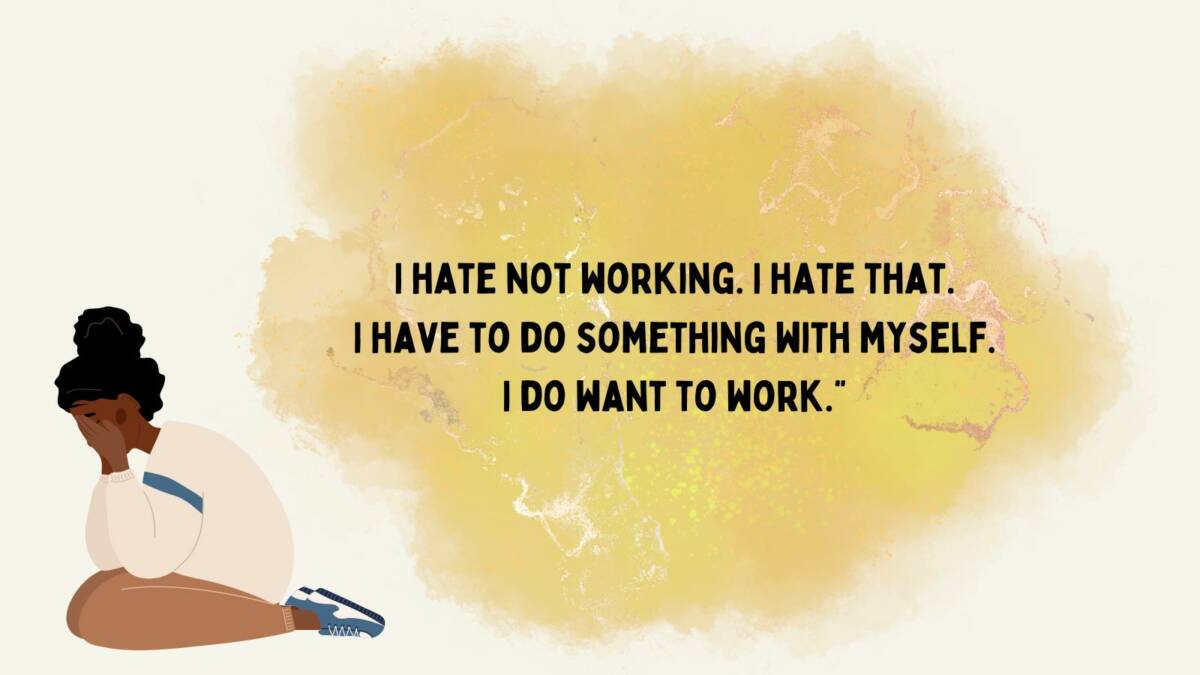Posted in Uncategorized
Amara recently shared the difficulties she has faced as a tenant facing eviction. As she continued to share her experiences, it became clear that challenges with her landlord were not the only issues that she has had to overcome. From housing to healthcare, a variety of issues often go hand in hand. And for Amara this has certainly been true. This is her story.
“I hate not working. I hate that. I have to do something with myself. I do want to work.”
As a mother of three, Amara has a lot on her plate day-in and day-out. She not only has her children but is often caring for five nieces and nephews since her sister tragically passed away.
Originally from Paterson, New Jersey and now living in the Columbia area, Amara’s challenges became much harder earlier this year when she unexpectedly lost her Medicaid due to an error in the system. That error led to challenging decisions across several months as she and the agency worked to reestablish her Medicaid.
“I need my medication,” says Amara. “I had to kind of pick and see what medication I could afford and what I couldn’t afford. Medication costs more than anything. It costs more than food; some medication costs more than cars.”
Medicaid helps reduce the cost burden for a wealth of medications. Though Amara was able to work with the agency to retroactively get back what she paid during this period of interruption, small medication charges of everywhere from $4 to $16 quickly added up for Amara’s low income, leaving her to have to make decisions on which medications to cut to make ends meet.
And that decision was not easy to make. Amara had everything from anti-seizure medication to mental health medication for depression and anxiety to medication for blood pressure and cholesterol. She also had to make decisions about which health care provider to use.

“I have to you know, go to the doctors. And a lot of times I even think cost efficiently about you know what doctors I go to because I don’t go to the emergency room unless it’s a body part that’s about to fall off or something broken. Most of the time I’ll go to urgent care. I go to urgent care more than I go to my regular doctor. It’s cheaper than my regular doctor so being cost efficient even when it comes down to spending somebody else’s money.”
Without Medicaid, Amara faced difficult decisions that affected her physical and mental health, and her ability to be in a healthy space to work. The program is vital to providing Amara, and others like Amara, with much needed stability. It helps individuals like Amara get essential medication monthly for their daily needs, so they can perform at their best and be able to work, to be there for family, and thrive.
The Medicaid program is vital to the health and survival of millions of South Carolinians, but they must often overcome a variety of bureaucratic hurdles to maintain and use their coverage benefits. From confusing differences between Managed Care Organizations (MCOs) to refusals to cover certain medications, the system definitely has room for improvements.
SC Appleseed is monitoring the Medicaid program in South Carolina to ensure that every Medicaid beneficiary is able to take full advantage of the coverage they are entitled to receive. Today, more than ever, we all benefit from the Medicaid program because of its role in keeping our communities healthier and safer. It is in all of our best interest to ensure the program is providing the best care possible.
Stories help to put a human face on healthcare policy issues. By sharing your story, you help speak for people who may be facing issues just like yours.

